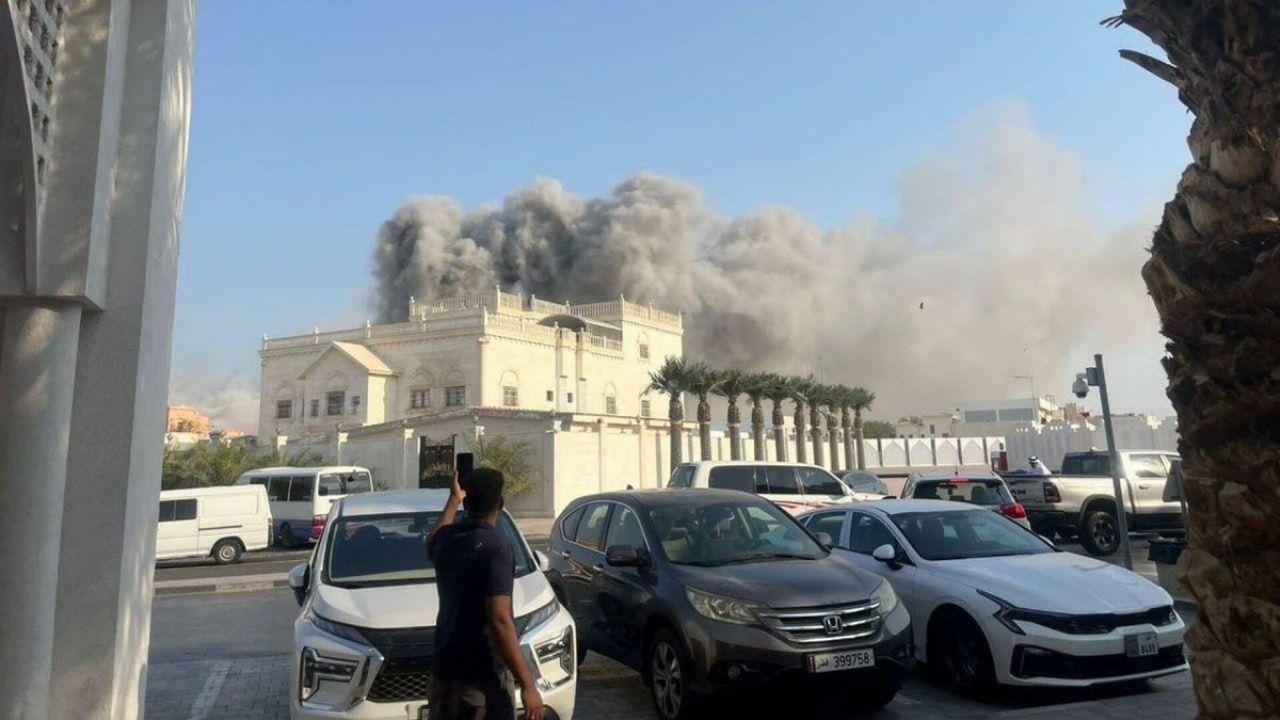
Post by : Abhinav Rana
Photo : X / Sputnik India
A Sudden Storm Over Doha
In a move that rattled diplomatic walls, Russia issued a sharp condemnation of an Israeli airstrike in Doha, Qatar, labeling it a “gross violation” of international law and the UN Charter. The attack, which targeted political leaders of Hamas during peace talks, intensified tensions in an already volatile Middle East, prompting renewed global debate over the balance between sovereignty and conflict strategy.
The Strike That Shook Doha
On a quiet Tuesday, the hum of midday in Doha was shattered by missiles aimed at a Hamas leadership meeting convening in pursuit of a ceasefire. Reports later confirmed six individuals were killed—including a Qatari security officer—while prominent Hamas figures reportedly escaped harm. The location, timing, and diplomatic sensitivity of the strike added fuel to a growing firestorm of criticism from capitals around the world.
Russia’s Stark Reproach
In a statement that sharply departed from diplomatic niceties, Russia’s Foreign Ministry denounced the Israeli action as "a gross violation of international law and the UN Charter." Moscow emphasized that the strike encroached upon Qatar’s sovereignty and risked destabilizing efforts to mediate peace. Its words echoed loudly, not just behind closed doors, but across global newsrooms and diplomatic briefings.
Global Reverberations
The outrage was not isolated to Russia. The UN Secretary-General condemned the strike as a flagrant attack on a nation serving as a mediator in the conflict. Other international voices—from regional parliamentarians to civil society leaders—joined the chorus of condemnation, warning that such escalations jeopardize fragile negotiations and risk setting the region ablaze.
A Breach of Trust Amid Mediation
Doha's role as a neutral mediator has been critical to recent ceasefire efforts. By striking there, Israel not only violated international norms but also cast doubt on Qatar’s safety as a broker. That perception now threatens to derail the delicate channels of communication that have kept talks marginally alive in a region desperate for peace.
U.S. Reactions Stir Controversy
In a rare show of frustration, the U.S. President expressed being “very unhappy” about the strike. Though he acknowledged receiving a warning ahead of the military action, he distanced himself from it, insisting he was not involved. The tenuous U.S. diplomatic posture—caught between alliance and disapproval—added a fraught undertone to the unfolding crisis.
The Cost of Escalation
Missiles do more than destroy targets—they dismantle trust, fuel retaliation, and deepen the chasms between regional stakeholders. Analysts warn this strike may alter the diplomatic calculation: if even mediating states are no longer sanctuaries, where can diplomacy take refuge?
Sovereignty Versus Strategy
Israel frames its move as a bold strike against terror leadership. Critics, however, argue that attacking a neighboring capital—especially one housing talks and peace intermediaries—crosses a red line that undermines the legitimacy of negotiation and casts shadows over those who risk neutrality for dialogue.
The Corridor Ahead Is Narrow
Qatar, for its part, reiterated its commitment to diplomacy—but quietly warned that its tolerance has limits. As voices around the region debate proportionality and purpose, global attention has returned to the fine line between military advantage and regional chaos.
The international community now watches a wound that could widen. Will detente stalls, or diplomatic avenues freeze altogether? Can peace find roots again if the soil of trust has been scorched? The answers will set a tone for the region’s ability to heal—or fracture.
Moscow’s condemnation matters because it reflects more than a geopolitical stance—it signals alarm. When a strike transcends battlefield calculus to breach mediator space, the message—as stark as it is urgent—is that conflict should not eclipse diplomacy. As the Middle East holds its breath, the real question is not just “Who fired the missile?” but “Where will we rebuild the bridges it shattered?”










Curry Powers Warriors to Nail-Biting 109-108 Victory Against Spurs
Stephen Curry's 49 points propel the Warriors to a dramatic 109-108 NBA Cup triumph over the Spurs,

India Advances to Semi-Finals After Thrashing USA in Women’s Blind T20 World Cup
India secured a dominant ten-wicket victory over the USA, advancing to the semi-finals in the Women’

South Africa's Early Advantage as India Struggles on Day Two
On Day Two, India reached 138-4 as South Africa took three early wickets, complicating matters with

Kenta Nishimoto Defeats Lakshya Sen in Japan Masters Semifinal
Lakshya Sen's journey in the Japan Masters ends after losing to Kenta Nishimoto 19-21, 21-14, 12-21

Kenta Nishimoto Defeats Lakshya Sen in Japan Masters Semifinals
Lakshya Sen's run at the Japan Masters concludes with a loss to Kenta Nishimoto in the semifinals, 1

Major IPL Trade: Jadeja Joins Royals as CSK Signs Samson
In a significant IPL trade, CSK has acquired Sanju Samson from Rajasthan Royals in exchange for Ravi